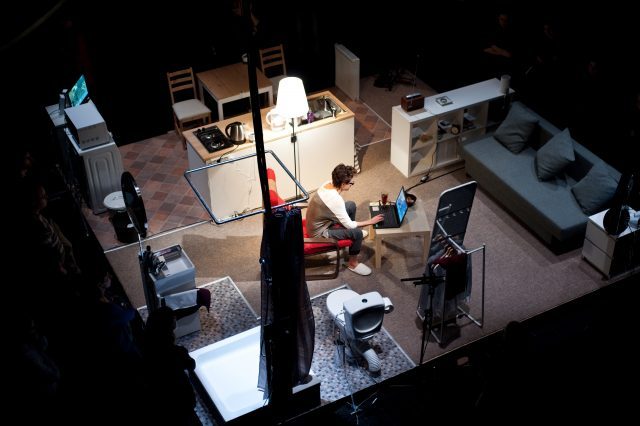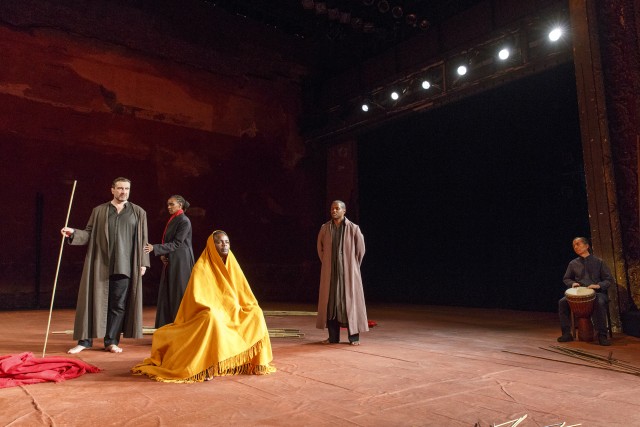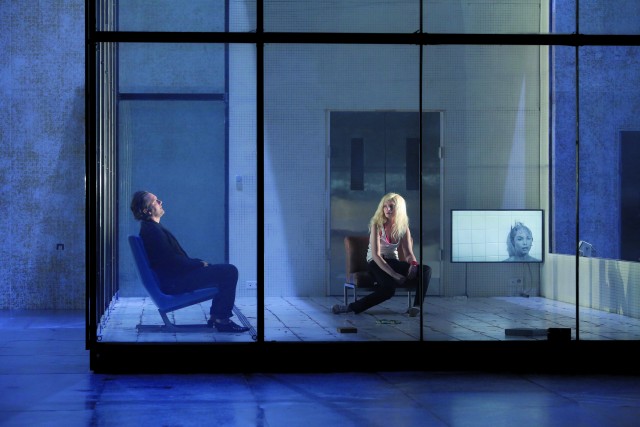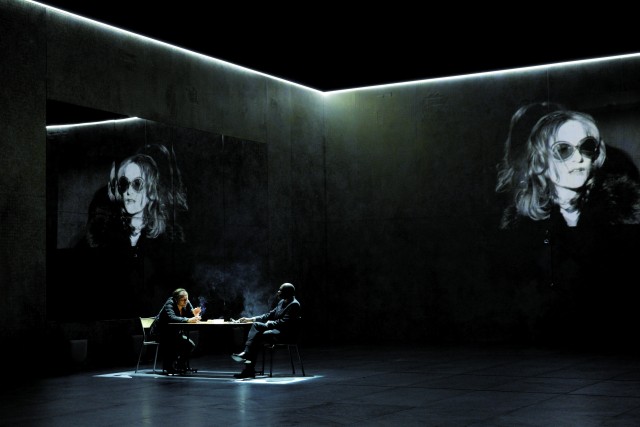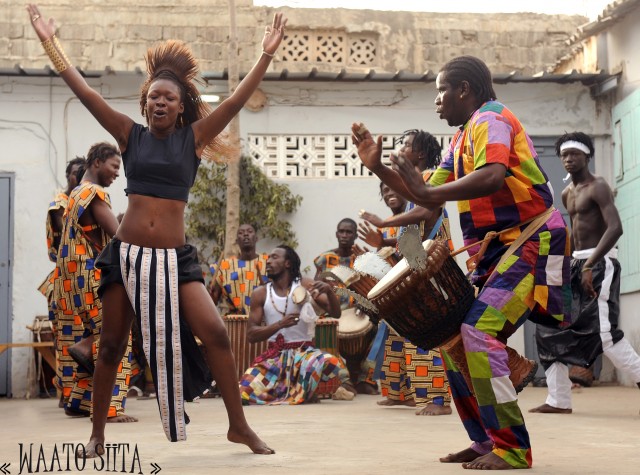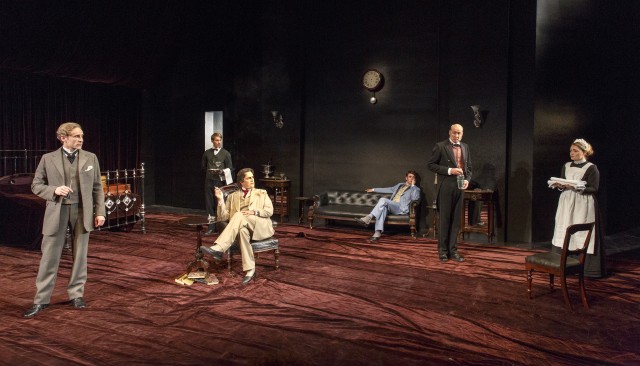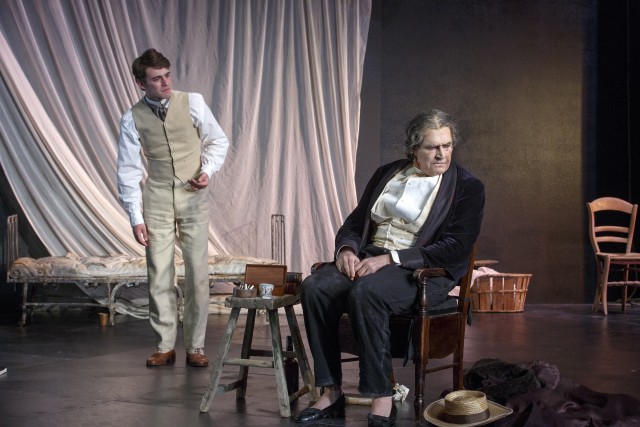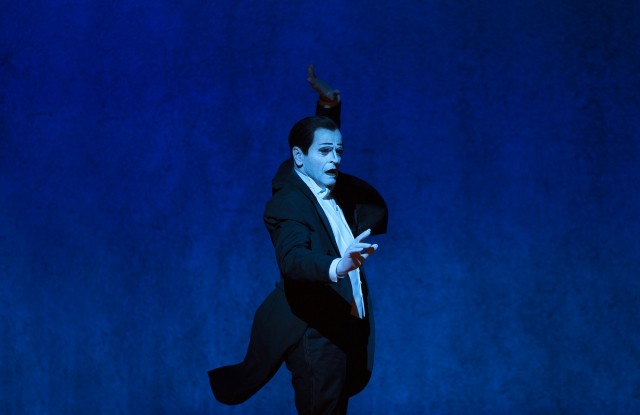
Mikhail Baryshnikov channels Nijinsky in Robert Wilson’s LETTER TO A MAN (photo by Lucie Jansch)
Who: Performers and/or creators Mikhail Baryshnikov, Isabelle Huppert, Ivo van Hove, Robert Wilson, Peter Brook, John Jasperse, Godspeed You! Black Emperor, Alarm Will Sound, Howard Fishman, David Lang, Jonah Bokaer, Daniel Arsham, TR Warszawa, Cheek by Jowl, the Magnetic Fields, So Percussion, Wordless Music Orchestra, Shen Wei Dance Arts, Kyle Abraham / Abraham.In.Motion, Faye Driscoll, Mark Morris Dance Group, and many more
What: Annual fall interdisciplinary performance festival
Where: BAM Harvey Theater (651 Fulton St.), BAM Howard Gilman Opera House (30 Lafayette Ave.), BAM Fisher (321 Ashland Pl.)
When: September 7 – December 3
Why: Tickets for BAM’s 2016 Next Wave Festival have just gone on sale to the general public, but you better hurry if you want to see some of the hottest shows of what is always a great collection of innovative dance, music, film, theater, and hard-to-describe hybrid presentations from around the world. This year there are more than five dozen events, including performances, talks, and master classes. We don’t know about you, but we’ll be practically living at BAM this fall. Below are five of our don’t miss favorites.
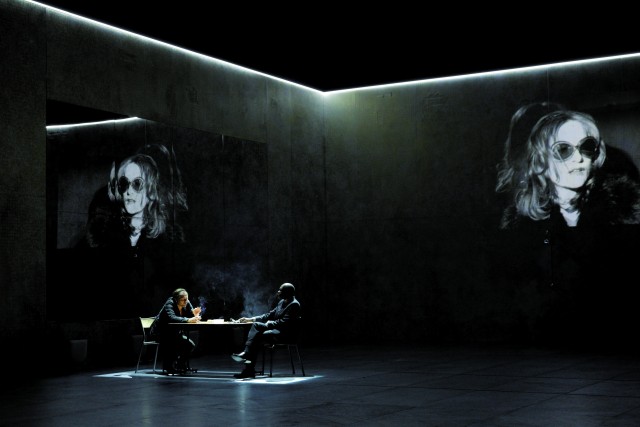
Isabelle Huppert stars as a modern-day mythical queen in PHAEDRA(S) (photo by Pascal Victor/ArtComArt)
PHAEDRA(S)
BAM Harvey Theater
September 13-18, $30-$95
Isabelle Huppert is back at BAM, following her stunning turns in Sarah Kane’s 4.48 Psychosis in 2005 and Robert Wilson’s Quartett in 2009. This time she stars as the mythological queen in Phaedra(s), in which director Krzysztof Warlikowski and Odéon-Théâtre de l’Europe incorporate texts by Kane, Wajdi Mouawad, and J. M. Coetzee to tell the three-and-a-half-hour story of love and tragedy. On September 18, BAM will host the related panel discussion “Phaedra Interpreted” at Borough Hall as part of the Brooklyn Book Festival.
REMAINS
BAM Harvey Theater
September 21-24, $20-$45
John Jasperse, who presented the exhilarating Canyon at BAM in 2011, now looks back at his thirty-year career as well as toward the future in Remains, featuring dancers Maggie Cloud, Marc Crousillat, Burr Johnson, Heather Lang, Stuart Singer, and Claire Westby and music by John King. On September 22 at 2:00 ($30), Jasperse will teach a master class for intermediate to professional dancers at the Mark Morris Dance Center, and on September 23 at 6:00 ($25) he will participate in a talk with Tere O’Connor at BAM Fisher.
LETTER TO A MAN
BAM Harvey Theater
October 15-30, $35-$120
BAM regular Robert Wilson reteams with Mikhail Baryshnikov in this multimedia staging of the diaries of Vaslav Nijinsky; the two collaborated at BAM in 2014 with The Old Woman. Baryshnikov recently paid tribute to his friend Joseph Brodsky in Brodsky/Baryshnikov, while Wilson has presented such aural and visual spectacles at BAM as Quartett, The Black Rider, and Woyzeck. On October 24 at 7:00 at NYU’s Center for Ballet and the Arts, “Inside Nijinsky’s Diaries” will consist of an actor reading from the diaries, followed by a discussion (free with advance RSVP).
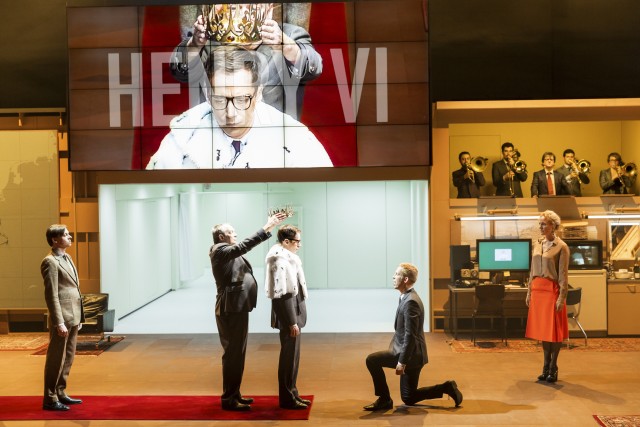
Ivo van Hove merges multiple Shakespeare plays into KINGS OF WAR (photo by Jan Versweyveld)
KINGS OF WAR
BAM Howard Gilman Opera House
November 3-6, $24-$130
In-demand director Ivo van Hove and Toneelgroep Amsterdam return to BAM for a four-and-a-half-hour adaptation of Shakespeare’s Henry V, Henry VI Parts I, II & III, and Richard III. Van Hove has previously staged such works as Angels in America, Cries and Whispers, and Antigone (with Juliette Binoche) at BAM, in addition to the double shot of A View from the Bridge and The Crucible on Broadway.
THANK YOU FOR COMING: PLAY
BAM Fisher
Judith and Alan Fishman Space
November 16-19, $25
Choreographer Faye Driscoll follows up Thank You for Coming: Attendance with this new work, which we got a sneak peek at this past weekend on Governors Island. Driscoll’s presentations (There is so much mad in me, 837 Venice Blvd.) are always involving and unpredictable, and this piece is no exception. Driscoll will also be teaching a master class on November 18 at 2:00 ($30) for performers at all levels.
